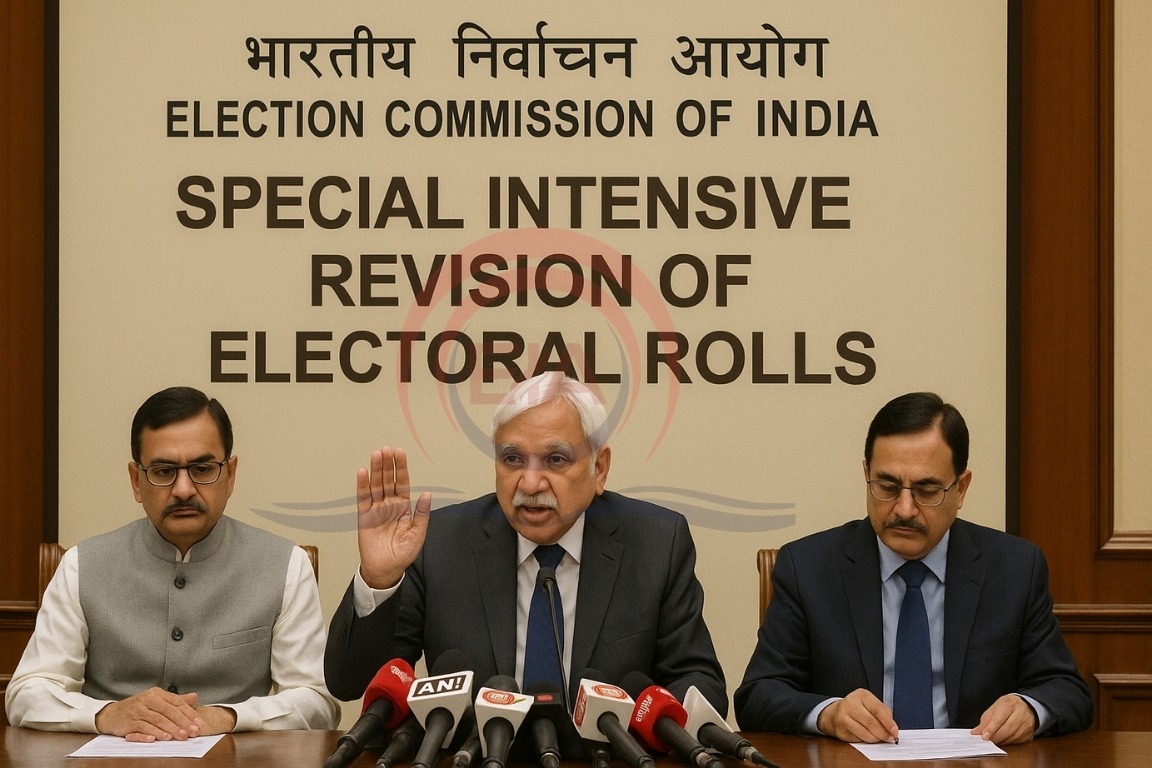The Election Commission of India’s (ECI) expansion of the Special Intensive Revision (SIR) of electoral rolls nationwide has sparked heated debate. While the ECI insists it is a routine cleanup to weed out bogus and duplicate entries, opposition parties warn it may disenfranchise millions, especially marginalized communities.
The Election Commission of India is rolling out a pan-India Special Intensive Revision (SIR) exercise to update voter lists by adding eligible voters and deleting ineligible or duplicate entries. This follows a pilot project in Bihar that led to the removal of nearly 47 lakh names, sparking nationwide scrutiny.
Proponents, including former Chief Election Commissioners, argue the exercise cleans electoral rolls, improving election integrity. The process uses rigorous verification, including Aadhaar linkage and house-to-house checks, to ensure accuracy.
However, opposition leaders and activists caution that the SIR shifts the burden of proof to citizens, risking erroneous removal of genuine voters, especially women, migrants, and marginalized groups. Political parties accuse the ruling government of leveraging SIR to suppress opposition votes, alleging exclusion based on political bias.
Legal challenges are underway, and the Supreme Court is monitoring the process to safeguard democratic rights. Analysts view the SIR as a critical but sensitive balancing act between electoral purity and voter inclusion amid India's diverse and populous democracy.
Key Highlights:
-
Pan-India Special Intensive Revision (SIR) aims to update and clean voter lists.
-
Bihar pilot project removed 47 lakh voters, triggering controversy and mistrust.
-
ECI defends SIR as necessary for electoral integrity and transparent rolls.
-
Opposition alleges political misuse and potential mass disenfranchisement.
-
Vulnerable groups like women and migrants may face disproportionate exclusion risks.
-
Supreme Court oversees the process with legal interventions anticipated.
-
Debate centers on balancing electoral accuracy with safeguarding voter rights.
Sources: India Today, Economic Times, Times of India, India Today YouTube, Vajiram & Ravi
